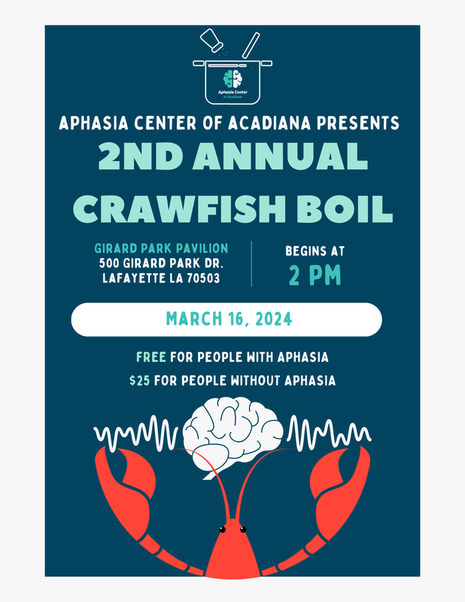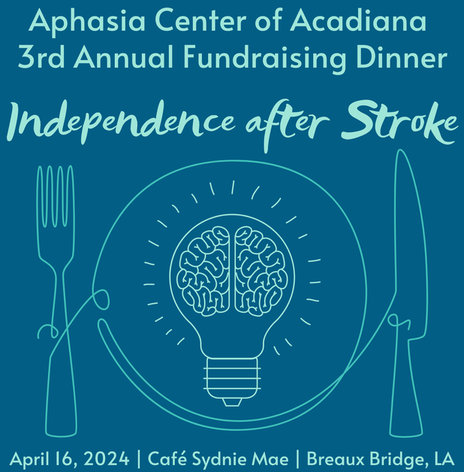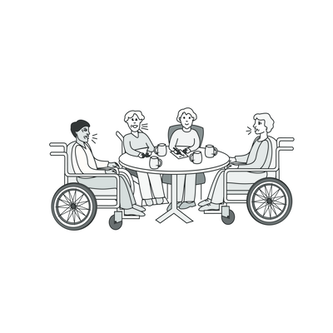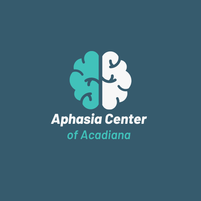Intensive Comprehensive Aphasia Program (ICAP)
We are excited to announce we are hosting our first ever Intensive Comprehensive Aphasia Program (ICAP) in collaboration with the University of Louisiana at Lafayette's Communicative Disorders Department, under the direction of the Doris B. Hawthorne Endowed Chair, Dr. Jamie Azios, PhD, CCC-SLP and the clinic director, Ashley Kidd, MS, CCC-SLP.
ICAPs are a relatively new service delivery model for stroke and aphasia rehabilitation. The number of ICAPs across the globe is increasing as a result of a desire to approach aphasia rehabilitation from a holistic perspective, while also implementing intensive treatment. Currently, the evidence suggests that intensive treatment yields the most effective treatment outcomes. The overarching goal of an ICAP is to maximize communication potential and improve the life participation. In short, ICAPs are multi-faceted and take into consideration the many aspects of communication needs faced by those affected by aphasia.
By definition, ICAPs provide a minimum of three hours of treatment per day for at least two weeks, with some programs providing as many as four to six hours per day over a period of four to five weeks. Daily treatment should include individual sessions, group sessions, and computer-based or technology-based treatment. Patient and care partner education should also be provided. Individuals with aphasia and their care partner who are enrolled in an ICAP may receive as many as 120 hours of focused language treatment over the span of one month, whereas a person who is enrolled in a standard treatment model will receive approximately 8 to 12 hours of treatment in the same time frame. Initial ICAP efficacy studies indicate positive patient outcomes across a variety of impairment-based and psychosocial domains.
Our Summer 2024 ICAP will span 3 days/week for 4 weeks (Jun 17-Jul 12) and consist of 60 hours of treatment. If you are interested send an email to [email protected]. Deadline to apply is March 8th.
ICAPs are a relatively new service delivery model for stroke and aphasia rehabilitation. The number of ICAPs across the globe is increasing as a result of a desire to approach aphasia rehabilitation from a holistic perspective, while also implementing intensive treatment. Currently, the evidence suggests that intensive treatment yields the most effective treatment outcomes. The overarching goal of an ICAP is to maximize communication potential and improve the life participation. In short, ICAPs are multi-faceted and take into consideration the many aspects of communication needs faced by those affected by aphasia.
By definition, ICAPs provide a minimum of three hours of treatment per day for at least two weeks, with some programs providing as many as four to six hours per day over a period of four to five weeks. Daily treatment should include individual sessions, group sessions, and computer-based or technology-based treatment. Patient and care partner education should also be provided. Individuals with aphasia and their care partner who are enrolled in an ICAP may receive as many as 120 hours of focused language treatment over the span of one month, whereas a person who is enrolled in a standard treatment model will receive approximately 8 to 12 hours of treatment in the same time frame. Initial ICAP efficacy studies indicate positive patient outcomes across a variety of impairment-based and psychosocial domains.
Our Summer 2024 ICAP will span 3 days/week for 4 weeks (Jun 17-Jul 12) and consist of 60 hours of treatment. If you are interested send an email to [email protected]. Deadline to apply is March 8th.
Monthly Support Group Meetings
- This support group is for persons with aphasia. This is a supportive and non-judgmental place to speak openly about struggles and successes. We meet the first Friday of each month at 9:30am at the Lafayette Public Library, Main Campus, 2nd floor conference room. 301 W. Congress St.
- We also offer a support group at the same day/time for caregivers, spouses, friends and/or family members of persons with aphasia. So, come find community together!
- Contact Ashley Kidd, M.S. CCC-SLP at 337-482-6577 for more information.
- We also offer a support group the second Friday of each month at 10:00am in various locations in New Iberia. It is hosted by Nicole Hebert, M.S., CCC-SLP and the Aphasia Center of Acadiana, Inc. Contact us for location dates.



